
By Jim Kulackoski
None of us have escaped the challenges the last two years have presented. We have all dealt in one way or another with an array of uncertainty in terms of health, stability, finances, and even how we relate to each other as social norms and decorum have gone out the window at times or have completely changed.
As we move into a new year, it’s understandable that many people are having a challenging time re-engaging with the world around them, or simply getting motivated on a day-to-day basis. In addition, we seem to be constantly bombarded with polarizing news stories, with little end in sight.

Fortunately, with the right perspective, these challenges actually have the potential to provide opportunities for growth. This is a basic principle, evident in nature, where challenges are the essential catalysts for evolution and growth—those here who have cultivated flowering plants know that when they are coddled in a greenhouse setting they may struggle to bloom and perform poorly when placed outside. Without challenges, growth is limited or even impossible. The stresses placed on all of us over the last few years present the same perils—and the same opportunities for us to grow and bloom again.
Below are some suggestions designed to help you navigate these times and the days ahead. Despite whatever is occurring in your own world, or the world at large, you can always improve your mental and physical health, strengthen your immunity, and learn something new about yourself while you re-engage with life and the people you love, such that you can thrive again.
Spoiler Alert: I have also included a link to a free meditation video below!
Keep an open mind

There is an old Buddhist story where 4 blind men encounter an elephant. Although they had all heard of an elephant before, none of them had ever met one in person. As they each began to feel the elephant, they began to argue about what it was they were actually feeling. The first man felt the side of the elephant and said “An elephant is like a large wall!” The second felt his leg and proclaimed, “No an elephant is round, like the trunk of a tree!” The third felt his ear and said, “ No, an elephant is like a large fan!” And finally the fourth felt its tail and said, “You are all wrong, an elephant is nothing more than a frayed piece of rope!”
In this slightly humorous story, we see that each of these men were neither right nor wrong. But it was their limited point of view that disallowed them to really understand what an elephant actually is.
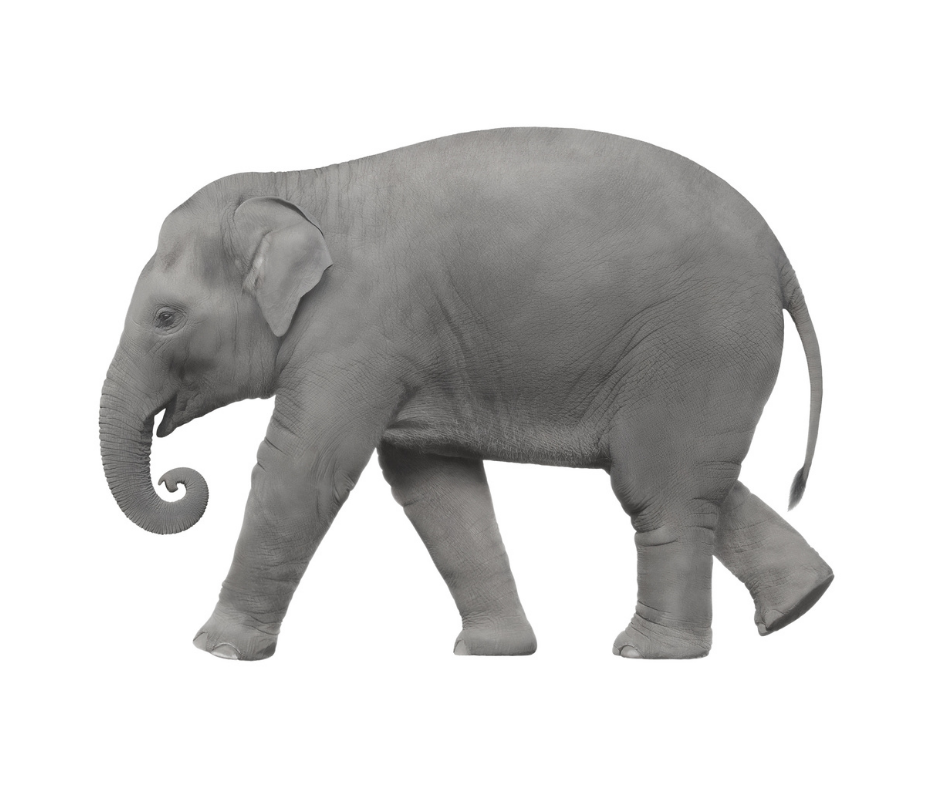
We usually think the beliefs we harbor and the points of view we cherish to be truth. In reality however, nothing is ever static. At one point in history, it was commonly held that the earth was flat, or that the sun revolved around the earth. So too, our current scientific understanding of the universe, which we may think of as the ultimate truth, is ever changing and evolving.
These evolutions of thought are wholly dependent upon our ability and willingness to step outside of our given paradigm and consider that the way we see the world may not be the way that it actually is or has to be. Outside of that ability to take on a new perspective, we would never be able to solve a problem, invent anything new, or discover a new way to treat disease.
Whatever state of mind you find yourself in, consider that it is only one possible way of thinking or being. The more we can be open to life as being a possibility, rather than a fixed set of uncontrollable circumstances, the better chance we have at living a fun, meaningful, and engaging life.
Our history of science is a history of evolution in thinking which illustrates that we can always achieve something great when we have the ability to look beyond the narrow scope of our own fixed ideas as well as the fixed ideas and beliefs that have been passed down to us as a society. Clearly, these unprecedented and uncertain times we are living in require us to take on an equally unprecedented perspective and way of being in order for us to blossom once again. If we fail to examine and move beyond our own belief systems and points of view, we have as much of a chance of really understanding life as the blind men and the elephant.
“The mind that opens up to a new idea never returns to its original size.”
- Albert Einstein
Guard your focus
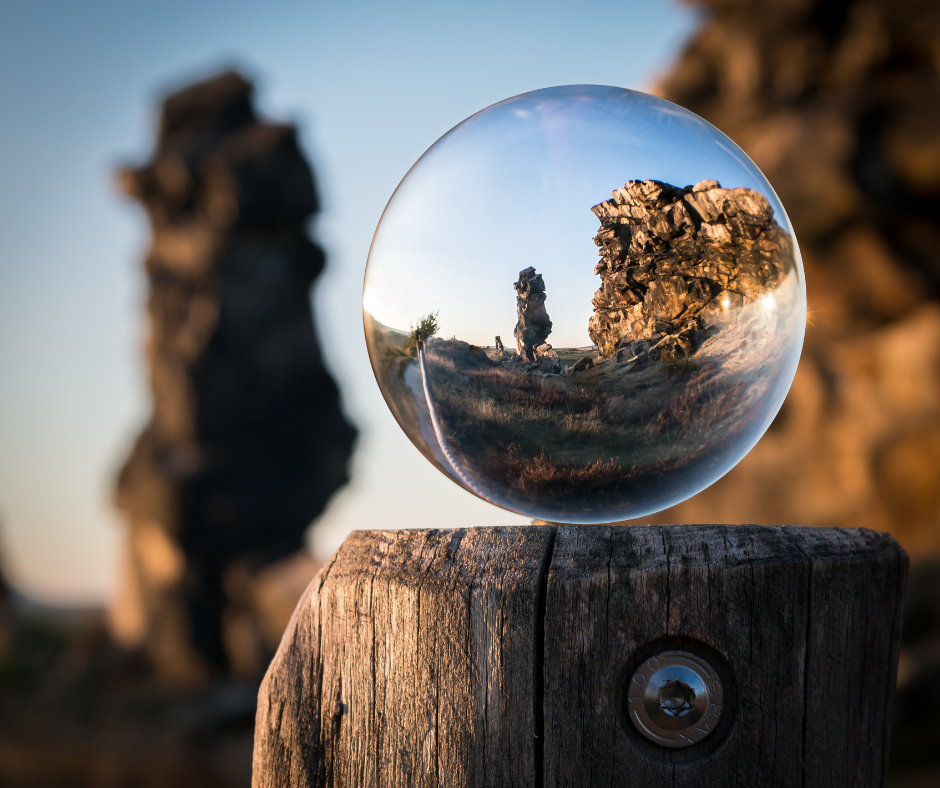
This suggestion is truly one of the most important to practice in your daily life. This is because everything you experience in life is essentially dependent upon where you place your attention.
For instance, you can only experience what you focus on in any given moment—if you think about it, nothing else is really possible. Therefore, it’s important to practice curating what and whom you surround yourself with, the situations you involve yourself in, and the kinds of thoughts you find yourself engaged in. If you rehash the same negative thoughts and situations over and over again, you will find that your life becomes a reflection of these ideas, not just in theory, but in reality.
A teacher of mine used to say “What you put your attention on grows”. This has been said so many times and in so many ways and I continue to find that to be true.
“Guard your focus as if your life depends upon it, because it does”
– Alex Charfen
Cultivate an attitude of gratitude

One very simple way to curate what you put your attention on is to cultivate the experience of gratitude as much as possible. The simple experience of being grateful creates an elevated state of mind which, research suggests, has the potential to actually boost immune function and, consequently, overall emotional and physical health and well-being.
One practice that I commonly prescribe to my clients to cultivate gratitude and develop a heightened state of physical and emotional well-being is to write down 3 things that you are grateful for every morning.
This simple exercise shifts the way you relate to your circumstances by developing the mental capacity to be truly appreciative of something. This state of appreciation demands that you become fully present and it is this state of presence that allows you to move beyond a troubled past, away from an uncertain future, and experience and appreciate the beauty of the present moment.
If you have trouble finding something in your life you are grateful for, think of a time in the past when you felt thankful, happy, or grateful – for example, maybe you lost your wallet and someone found it and returned it – try to fully inhabit that feeling of gratitude and relief that you felt in that moment.
Interestingly, the benefit of this practice has less to do with identifying a specific thing to be grateful for, so much as cultivating that heightened state and immersing yourself in the emotional experience of gratitude. Just as physical exercise develops the muscles, this mental exercise helps to develop and focus the mind and has a powerful, positive effect on the body. Try this exercise, and you will see how differently you start to perceive the world around you!
Be intentional
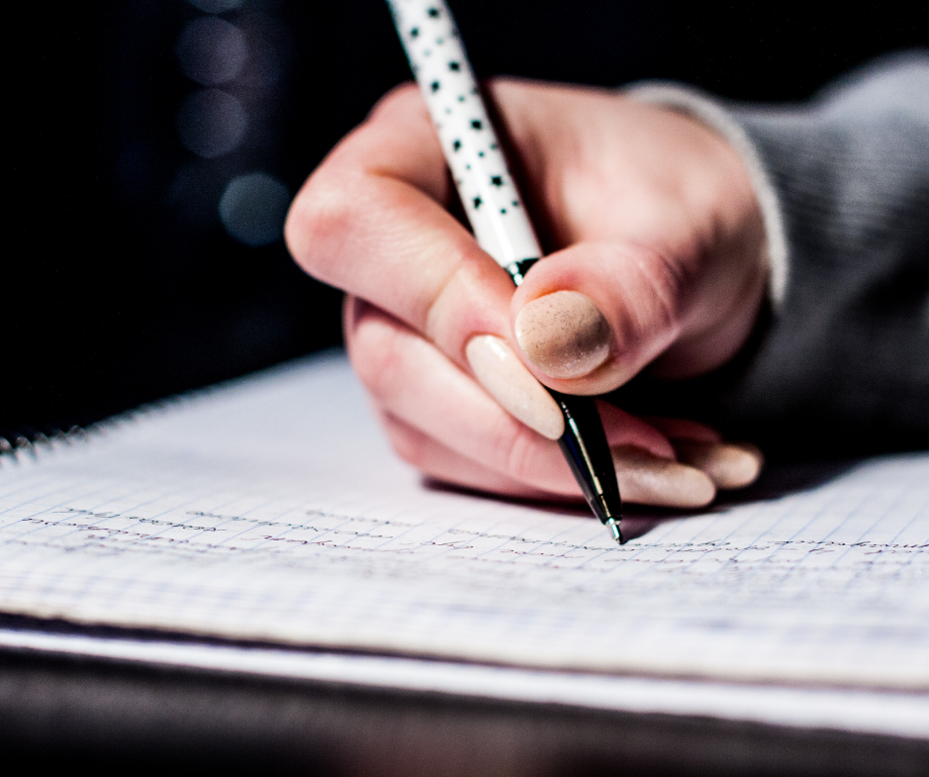
Be intentional with your thoughts and actions. Being intentional is a daily practice of simply meditating on what it is you intend to accomplish for that day and is a great way to orient yourself towards action.
For example, write down who you intend to be today. Perhaps you would like to cultivate an attitude of gratitude, compassion, patience or productivity as a way of being. However, this is much more than just making a list – it is a meditation on becoming the person you most want to be. Therefore, this practice is an excellent way to explore your own personal evolution, as each day, you have the opportunity to create yourself anew.
Maharishi Mahesh Yogi, the founder of Transcendental Meditation said “Once the knowing is clear, the doing is effortless”. This simple statement is actually quite profound. Once you are clear about how you are going to approach your day, you will find your thoughts and actions organizing themselves in a manner that reflects your fundamental intentions for each day.
This is universally true; once you make up your mind and are clear about your intentions in life, the desired outcome is sure to follow. For instance, in order to take a trip, you must first decide on where you are going. Being intentional is the first step in anything you set out to accomplish.
Get into momentum
Now that you have begun to develop an attitude of gratitude, and have spent the time getting clear about your intentions, it is time to take it into action and get into momentum. The nature of life is to evolve and grow. Nothing is static – even at an atomic level, we see that apparently, the inert matter is actually in a state of vibration, or momentum.
As living breathing beings, we are also subject to the laws of momentum (or karma as it is called in yoga). When we cease to move towards something, we lose our sense of purpose and we spiral into a state of inertia. Therefore, intentional thought and action provide the framework for both short-term and long-term momentum.
I’ve found that one of the most important things for nearly everyone is to have a sense purpose. Purpose involves the idea of moving towards something and accomplishing it. Purpose provides the experience of momentum in life by providing a clear vision of something to live into.
As gratitude, the state of momentum is something that requires awareness and practice. If you are unclear about what direction you want to move into, I have found that a sure-fire way to get into momentum is to do something which supports an idea bigger than yourself as an individual. For example, being of service to others, even in the smallest way, creates the experience of purpose and therefore momentum in a way that no other type of action can.
This type of action, called Karma Yoga in yoga philosophy, causes you to move beyond yourself as a limited being and unites you with something bigger than yourself. If you have extra time, consider donating yourself to a cause greater than yourself. You will be surprised at how alive you really feel!
Meditate
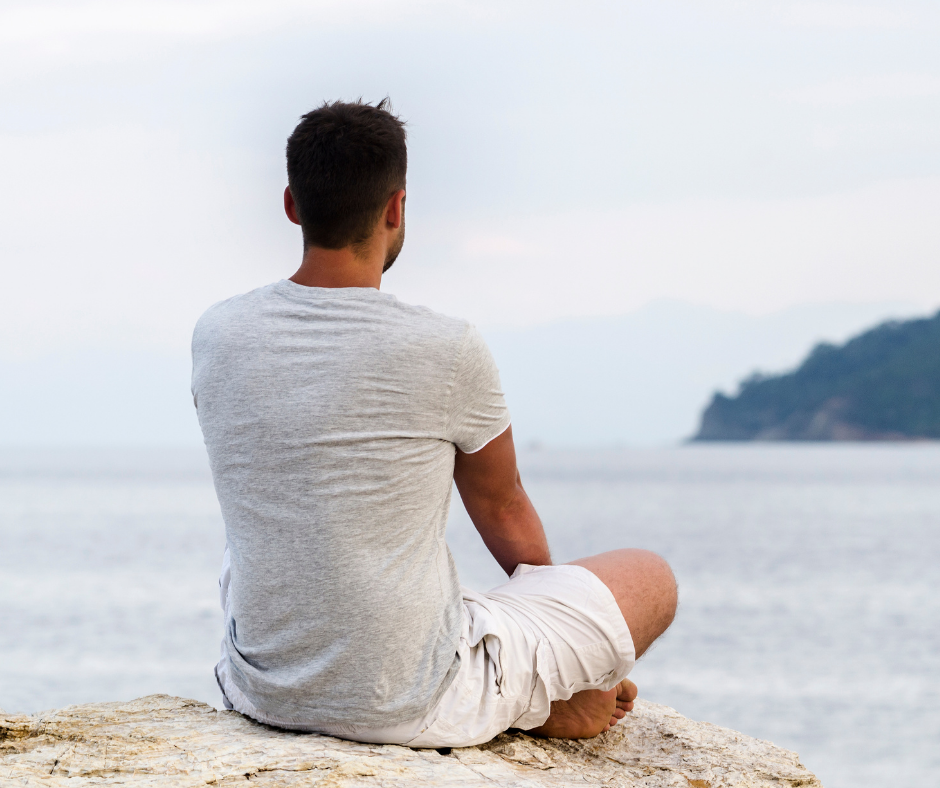
Now that you have had the opportunity to cultivate an attitude of gratitude, organize your thoughts and intentions and started to feel a sense of momentum in life, it is time to explore this most important practice of meditation.
Put simply, meditation is the practice of cultivating the ability to consciously direct your attention. While we have already discussed the fact that your life is a reflection of where you place your attention, meditation is the practice where you assume the drivers seat in your own mind.
To put it another way, meditation is not just about relaxing the mind-although that is a great benefit of meditating regularly-the real benefit of a regular meditation practice comes from the cultivation of control over your own thoughts and states of consciousness. Additionally, extensive studies have shown significant positive effects of meditation on health and the function of the immune system by doing the following:
-reducing stress and anxiety
-enhancing emotional well-being and self-awareness
-reducing age-related memory loss
-lowering blood pressure
-improving the quality of sleep
Clearly, when considering benefits like these, it is easy to see that engaging in a daily practice now could be more relevant and beneficial than ever. What’s even better, is that you can practice meditation virtually anywhere and at any time.
Of course, there are many forms of meditation available and I have heard people say over and over again “I just can’t meditate”. However, for those interested in learning more, I have developed a straightforward, easy-to-use technique that will actively and consciously focus your attention to produce a powerful and beneficial meditative state.
In fact, this technique was designed to bring your attention to a state of “one-pointedness” and actually allow you to experience a deeper range of the mind and state of consciousness. This means that when you meditate, you will actually begin to transcend who and what you currently are experiencing as your reality.
Follow this link to get access to a free simple and powerful meditation technique:
https://www.guruu.one/free-meditation-course-darshan-kriya
Of course, so much of what we have covered thus far concerns an internal orientation towards creating a state of well-being, however, there are also a number of external practices which you can employ to maintain your physical well-being.
Strengthen your immune system
I know that this idea is not necessarily part of our current paradigm. We generally think of the state of our immune system as something we are born with and beyond our control to alter. Additionally, there are those who have come to acquire a compromised immune system and who feel they are at the mercy of their environment when it comes to getting sick.
However, in my experience – both personally and from working with clients and patients over the last twenty years – it is completely possible to strengthen your immune system.
Some of you know that my own childhood was fraught with physical disabilities and frequent illnesses. However, through the practice and study of yoga, various forms of meditation, journalling and cultivating gratitude, I have developed an immune system that has kept me free of illness for over 30 years (those who know me well can attest to this).
Here is a link to a previous article about cultivating immunity I wrote for Classic Chicago in 2020. It is full of suggestions of ways you can supplement your immunity and includes links to videos with special exercises:
Exercise

I recommend exercising for a number of reasons, not the least of which is that it allows you to circulate energy. In short, when you exercise, you are creating movement. Movement (or momentum), which we discussed earlier, keeps things from stagnating in the body. When parts of the body stagnate, disease occurs. In traditional Chinese medicine, the disease is said to be caused by the stagnation of energy. If you think about this, it makes a lot of sense – when parts of the body become stagnant, they cease to function properly, circulation decreases, and they essentially become disconnected from the rest of the body.
The same thing goes for the mind. And when we are stuck in certain thought patterns or emotions, we tend to experience depression or anxiety. Movement of the body also helps relieve stagnant conditions in the mind and improves mood.
As for types of exercise, I prefer activities which really engage all aspects of your being-your physical body, your mind and your attention. Exercise is a great time to practice “mindfulness”. While there are certainly many benefits to running on a treadmill watching tv, listening to music, (essentially doing anything you can to distract yourself from the task at hand), it’s better to do things you actually enjoy doing, activities which integrate the different parts of your body and which you can be really present in.
For example, whether you are running on a treadmill, outside on the lake path, or on a trail, see if you can really feel what parts of your foot contact the ground with each step, or perhaps if you use the sides of your body differently. What sort of posture do you assume? How does it feel? Is it ideal to the type of activity you are engaging in? Become aware and then see if you can begin to correct any imbalances you find.
Applying this level of awareness to your activity makes it all the more effective and reduces the chances of injury. In a sense, your exercise can also become a type of meditation.
Here is a link to a virtual consciously based yoga class which teaches you how to be acutely aware of your body in any situation:
http://darshancenter.com/yoga-and-meditation
Have regular physical contact with other people

Yes, yes, I know we are supposed to stay away form each other, and I am not suggesting anyone ignore imposed guidelines. However, again, research has proven the positive effects of human contact on the functioning of the immune system as well as psychological health in general. In fact, regular human contact is essential for proper mental and physical development in children. If you are able to spend time with family members or people you feel safe with, it might be a good idea to practice giving each other hugs a little more often.
Be a contribution

Whether you are confined to your home, or out and about, consider how your presence and actions affect those around you. Think about how your very presence can be a gift to those you come into contact with. It can be as simple as at the bank teller (they can see it through your mask), or simply acknowledging other people for who they are to you and thanking them.
This practice allows you to fully appreciate the people you have in your life, which leads naturally to the experience of gratitude. Even if it’s the smallest thing when you authentically let others know who and what they are to you, you not only enliven the experience of gratitude within yourself but also inspire it within another. Perhaps, more important yet, it allows for a deep sense of connection with another being, which is perhaps one of the greatest things we can experience in life.
Limit exposure to sensationalized media
I know this may sound like a hard one, but it can be life-changing. This is another aspect of curating what you place your attention on.
The media is a business dependent upon grabbing and keeping your attention. In order to do so, information and stories are presented in a manner which invokes strong emotions. Strong emotions keep you engaged, but also wear on your ability to live a balanced life and to think rationally for yourself. As of late, it also has had the effect of polarizing and dividing people against one another. This can not possibly be a good thing for us both as individuals and as a functioning society. If you really need to know something I recommend going directly to the source, or trying looking at multiple media sources to arrive at your own educated conclusion.
Don’t forget to have fun
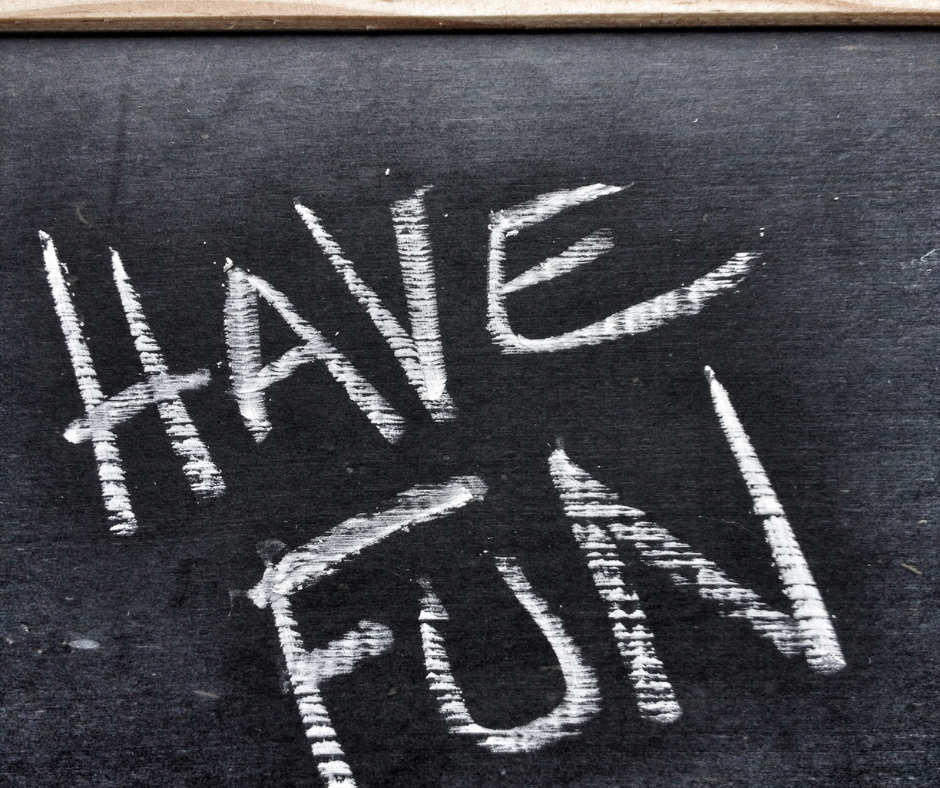
At the end of the day, we all have the opportunity to create our lives. In your own process, don’t forget to make space for fun. Whether alone or with others, include activities in your life that really move you, inspire you, and give you a reason to get out of bed in the morning.
As Maharishi Mahesh Yogi used to say, “The purpose of life is the pursuit of happiness.” I couldn’t agree more. The more conscious we become, the more we realize that life is actually a gift, providing us with nothing else but opportunities to experience, appreciate and create. We all know this fundamentally, otherwise, why would we try to protect life so much? The more you can view your time here as something unique and precious, the more you will want to live it to the fullest.







